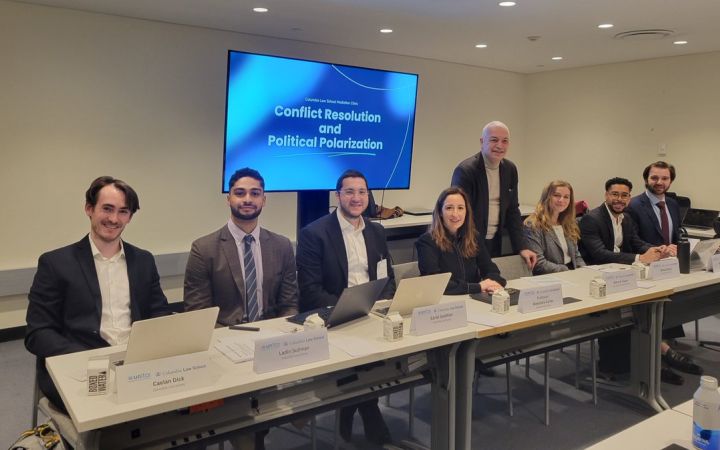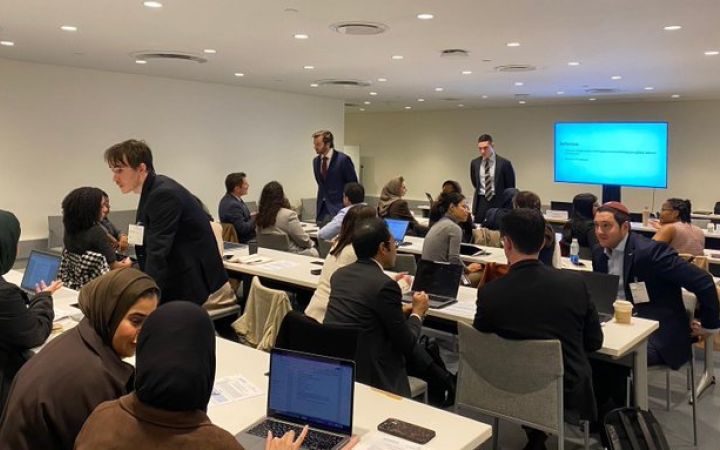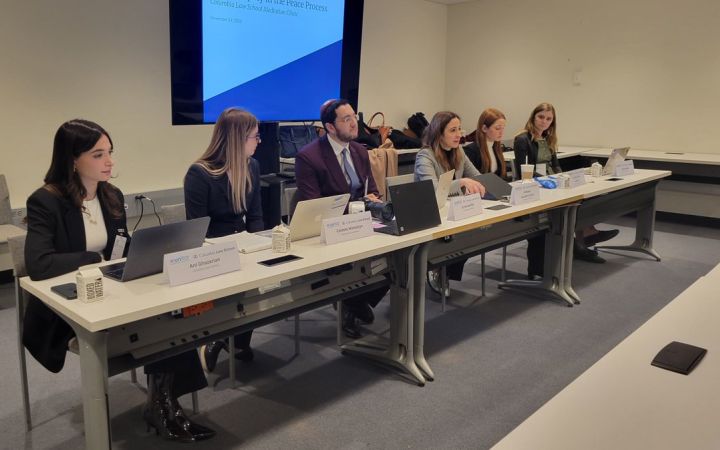25 November 2025, New York, USA — In November 2025, UNITAR, in partnership with Columbia Law School’s Mediation Clinic, delivered a three-part Columbia Mediation Training Series at the United Nations Headquarters designed to strengthen the conflict-resolution capacities of diplomats and UN staff. Led by Professor Alexandra Carter, Clinical Professor of Law and Director of the Mediation Clinic, the series provided structured, practice-oriented training at the intersection of mental health, political polarization, and gender equity in peacebuilding.
The series opened on 10 November with the workshop “Conflict Resolution and Mental Health”, which explored the influence and role of mental health in negotiation behaviour and diplomatic judgement. Participants explored how anxiety, trauma, and prolonged exposure to high-pressure environments shape communication, decision-making, and conflict escalation, and engaged in guided exercises to strengthen emotional awareness and conflict-management skills. The session emphasized the importance of recognizing psychological dimensions of conflict and provided a space for diplomats to reflect on navigating tensions between institutional positions and personal values.
On 17 November, UNITAR and Columbia Law School reconvened for the second session, “Conflict Resolution in an Era of Political Polarization.” The workshop addressed how ideological fragmentation affects dialogue, trust-building, and multilateral cooperation. Panel discussions and case-based learning helped participants analyze the roots of polarization, understand its impact on diplomatic negotiations, and apply techniques for facilitating conversations in high-emotion, high-stakes settings. Participants worked through practical frameworks for mitigating bias, reducing escalation, and strengthening institutional resilience amid polarized political climates.
The series concluded on 24 November with “Gender Equity in the Peacebuilding Process,” an interactive programme focused on the essential role of women in peace negotiations and conflict-resolution processes. Participants examined the global evidence base on women’s participation, identified the structural and cultural barriers that continue to limit their representation, and engaged in skill-building exercises centered on mediation techniques that support gender-inclusive decision-making. The workshop also emphasized the importance of advancing institutional reforms that create more equitable, representative, and effective peace processes.
Working in close partnership with Columbia Law School, the series provided delegates and UN staff with practical competencies, analytical frameworks, and reflective learning experiences that support more effective engagement across the UN system and in complex negotiation settings worldwide. Through the three workshops, UNITAR strengthened its commitment to equipping Member States and UN personnel with forward-looking tools that strengthen diplomacy, enhance communication, and promote inclusive governance.





